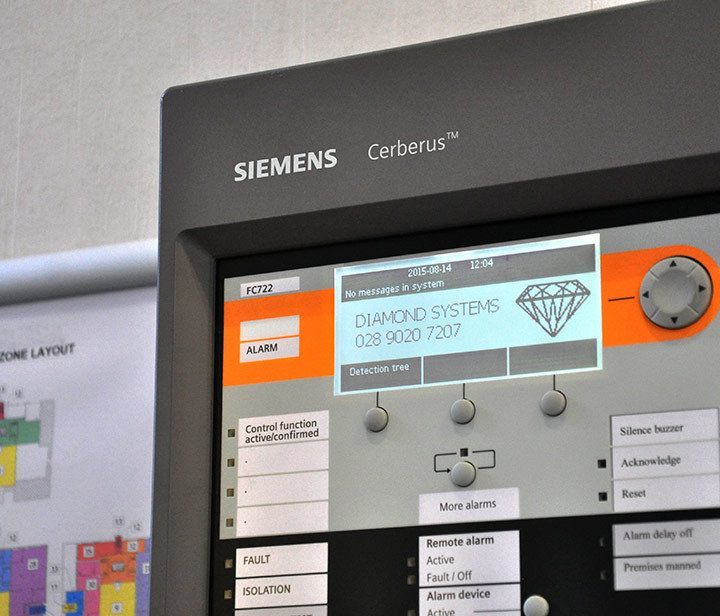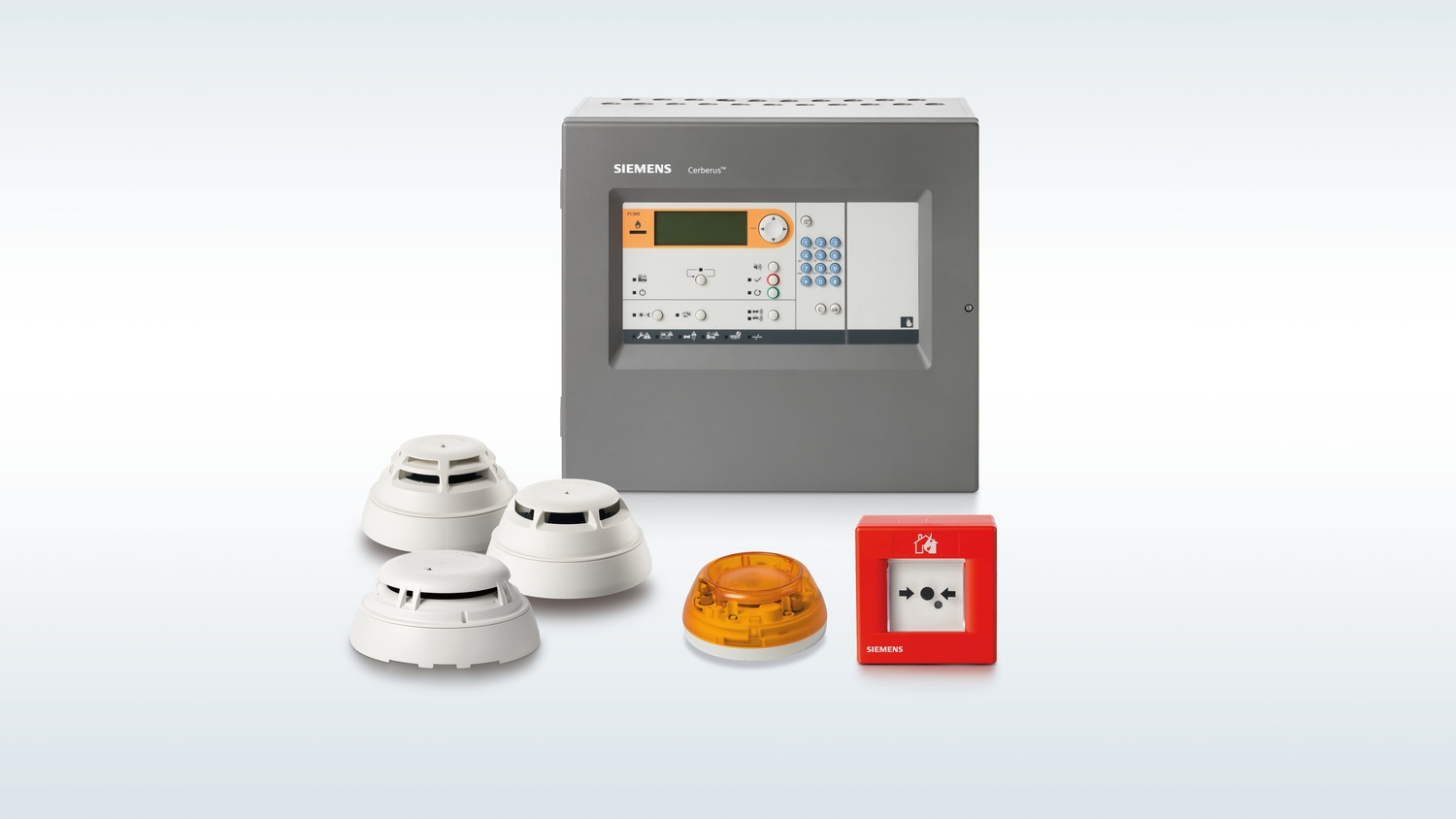Fire is one of the most serious threats to property due to its speed and destructive force. Within just a few moments, fire can engulf a room and leave a building in a state beyond repair. Most businesses do not recover from a major fire, due to the delay in getting the operations back up and running following a major incident. In the UK there are over 20,000 fires per annum in non-residential premises, with an estimated 80% of these businesses failing within the subsequent eighteen months.
A properly designed, well-installed fire detection and alarm system is a key measure in limiting the damage caused by fire. Fire detection and alarm systems, if properly maintained by a competent company such as Diamond, should provide early, reliable detection of fire, and prompt notification to both the buildings occupants and the emergency services.
The choice of fire alarm system depends on the building structure, the purpose and use of the building, and the current legislation and codes of practice. Diamond will guide you through the options and legislation with regards to your fire detection and alarm system requirements. As a customer of Diamond, you will have complete satisfaction that your system fully meets all applicable legislative requirements and is fit for purpose. Diamond can also, through intelligent design, eradicate false fire alarms in your premises, no matter how demanding the environment is in terms of deceptive phenomena such as steam, dry ice, welding fumes, cooking fumes and aerosols.
To promote understanding of the range of fire alarms available and the applicable standards and codes of practice, we are pleased to offer system designers and specifiers free CPD Accredited training on a range of fire detection related topics. Please contact us to find out more and register your interest.
Aspirating smoke detectors are ideal for use in environments where sources of fire are hard to detect. Examples include churches and museums, shopping malls, or libraries. Aspirating Smoke Detectors take in a continuous sample of air by means of a high performance suction. The air is fed via a pipe network to a detector chamber where it is subject to continuous checks. If the chamber detects smoke particles, the alarm is activated and/or the extinguishing process triggered.
A flame detector is the ideal choice for areas containing flammable materials – such as waste recycling centres, engine test beds, flammable stores or hangars. These areas involve a high level of danger and fast fire formation. A flame detector detects smokeless liquid, gas fires, and smoke-generating open fires of carbon-based materials almost instantly.

